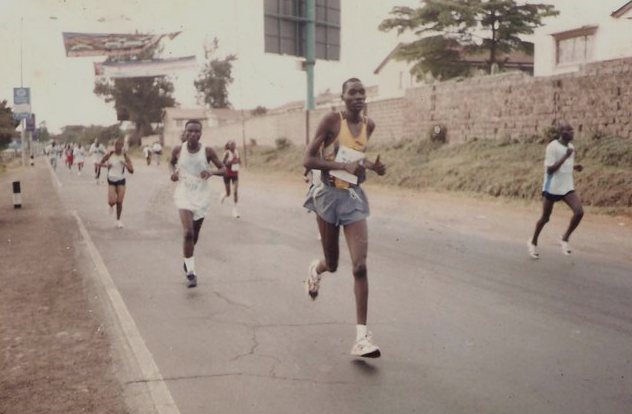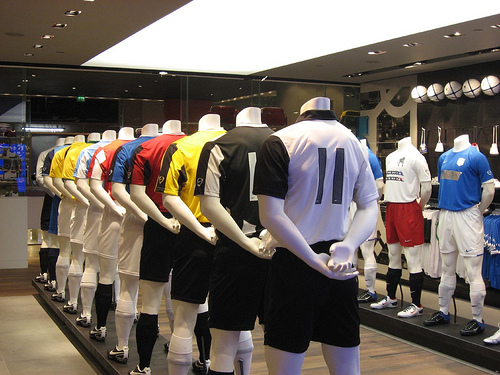In my wildest dreams I never thought I would own a soccer team. But here I am at 29, possibly the world’s youngest team owner. And the most stressed in Botswana, if not the world. It’s no joke to run a team. Ask Jomo Sono, Patrice Motsepe and Roman Abramovich.
Of course I’m still waiting to become as rich and powerful as they are. My team is just a social soccer side playing in an informal league known round these parts as the “Sunday Times” because of when we play.
The Sunday Times “league” has taken Botswana by storm. Matches are organised mostly by word of mouth and the teams include a few old men, but the bulk are wild and badly behaved youngsters — some as young as 15.
My team — Industrial Super Stars, so named after the scrapyard area in Itekeng where the majority of our players live — is made up of disgruntled and uncontrollable alcoholics without any soccer skills to boast about. My bunch was rejected by other Sunday Times soccer clubs.
In my quest to be Motsepe, I took the opportunity to name and organise the team. But finding them before a match is more complicated, especially at the end of the month. After payday, the team owner has to endure moving from one drinking hole to another in search of his players.
One of the unique things about the Sunday Times soccer league is that the usual football rules and regulations are relaxed. So relaxed, most of them don’t apply. A player can be substituted and come back into play later, as many times as he likes. A referee might smoke a cigarette during the game. The referee can also be substituted if one team feels he is biased in favour of the opponents. When this happens, the ref is likely to express his disgust at the decision by donning the kit of the team that stood by him when he was subjected to insults.
Alcohol and dagga abound and the players use them with abandon. Because most players are unemployed — especially in my team — pints of Chibuku, a traditional brew, are a regular feature at the games.
These players don’t care if team “owners” and officials such as me are present when they take their dagga. They are very uncouth. They spew venom. They don’t want to be shouted at like professional coaches shout at their players. They threaten to decamp to another side and there are plenty to choose from at the bottom of the league barrel.
In the worst scenario they threaten to form their own team that will be run and controlled by them without being subjected to civil behaviour lectures. The most foul-mouthed will tell you to your face that you don’t own them and that just because you occasionally buy them pints of Chibuku, this doesn’t make you better than them.
I have been told to go and write shit in the papers whenever I called some of my players to order. “Just because you write for newspapers doesn’t mean you can lecture to us about good behaviour,” I have been told countless times.
It is a bit unfair because other football team owners, such as Sono, Motsepe and Abramovich, are not subjected to this treatment. By the same token, just because my bank balance hovers close to zero most of the time, it doesn’t mean I should be subjected to this sort of treatment, I mutter to myself.
Although I’m not given the respect that I deserve, the team is happy to use the water in my house to wash the kit. I’m also the custodian of the kit, which is a raw deal. Come half time nobody listens to the coach. They don’t want team talk. They just want alcohol and that foul-smelling green stuff.
One of the Industrial Super Stars officials is my younger brother. One recent Sunday we Mosikares were accused of having hijacked the team.
Drunken debates ensued. I came up with the idea of forming a rival team to the neighbouring Itekeng Soccer Club when I realised that the majority of my present players were not being given a chance to prove themselves.
To explain the set-up for a South African audience, let’s put it this way: if Industrial Super Stars were a political party it would be Cope; Itekeng Soccer Club would be the ANC.
My breakaway plan was hatched in the middle of the month when I did not have money to buy a team kit. So one of my cousins — among those now accusing me and my brother of hijacking control — went and bought the kit at one of the Chinese shops in town. It is a “fong kong” kit costing less than P200 (about R250).
I wanted to refund him so that I could be left to run my Industrial Super Stars the way I liked, but he refused. My cousin can be difficult to deal with. On the field he will agree to be substituted only when he wants to smoke a cigarette.
In our way my team is like a close-knit family. And like all families, we bicker. It’s just as well we hardly ever win any matches — when we do, the boys drink until they drop.
Oarabile Mosikare is a reporter for Mmegi and Monitor newspapers. He lives in Francistown, Botswana. This post was first published in the M&G newspaper.


